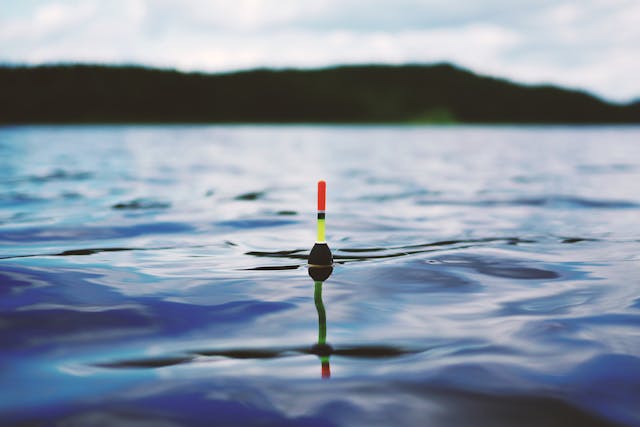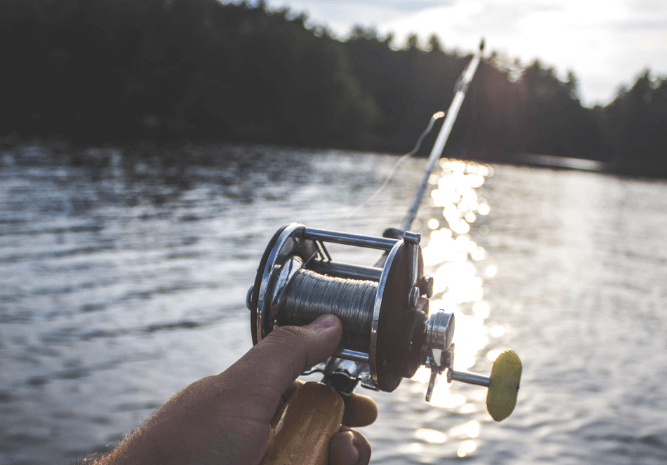Casting your line into Hawaii’s shimmering waters can be a dreamlike experience, but before you turn that reverie into reality, there’s the matter of the fishing license. This overlooked document is not only a legal necessity but also a gateway to enjoying one of the state’s most beloved pastimes. In this comprehensive guide, we’ll untangle the regulations and requirements surrounding fishing in the Aloha State to ensure your next fishing trip is a tranquil and lawful affair.
Understanding Hawaii’s Fishing Regulations
The Hawaiian archipelago is a treasure trove for anglers, blessed with diverse marine life and varied fishing environments. To protect these resources and ensure sustainability, the state has established a robust set of fishing regulations.
Seasonal Considerations
Hawaii’s waters play host to an array of migratory species whose patterns shape the fishing season. From the winter arrival of Ahi to the summer swarm of Ono, understanding the ebb and flow of these patterns is critical for the avid angler.
Size and Catch Limits
It’s essential to know the size and catch limits for the species you’re targeting. Marlin, for example, must be over 100 pounds to keep, but if you’re after Papio, you’ll need to stick to a limit of ten per person.
Gear and Method Restrictions
Hawaii’s regulations go beyond merely specifying what you can catch by setting guidelines for the gear you can use. Spearfishing, for instance, is prohibited in certain areas.
Navigating the Fishing License System
For many, obtaining a fishing license can be a confusing affair, especially when it involves an island paradise like Hawaii. The process, however, is relatively straightforward and can be broken down into a few simple steps.
Types of Licenses in Hawaii
There are several types of fishing licenses available in Hawaii, including freshwater and saltwater options. The choice is primarily determined by the type of fishing and the locations you plan to visit.
How to Obtain a Fishing License
You can apply for a fishing license in Hawaii through the Department of Land and Natural Resources. The process can be completed online, at a local licensing agent, or via mail.
Costs and Validity
Fishing licenses in Hawaii vary in cost and validity, and special permits may be required for certain activities, such as charter boat fishing. Be sure to check the current fees and expiration dates to stay compliant.
The Local Angler’s Code of Ethics

To truly integrate into Hawaii’s rich fishing culture, one must adopt the local angler’s code of ethics. This unwritten code reflects the spirit of the islands and ensures a harmonious relationship between fishermen and the sea.
Respect the ‘Aina and Kai
The importance of “Aloha ‘āina” (love of the land) cannot be overstated. Treat the ocean and the shores with respect and gratitude.
Share with Care
Hawaii offers abundant fishing opportunities, but it’s crucial to share these resources responsibly, leaving enough for future generations.
Educate and Participate
Stay informed about the latest regulations and conservation efforts. Engage with local fishing communities and organizations to contribute positively to the sport.
Tips for a Positive Fishing Experience in Hawaii
With the licensing process behind you and regulations understood, it’s time to focus on the experience itself. Here are some tips to elevate your angling adventure in Hawaii.
Know Before You Go
Research your fishing spot thoroughly. Hawaii’s waters are as diverse as they are unpredictable, and local knowledge is invaluable.
Respect the Elements
The ocean can be unpredictable, and weather patterns can change rapidly. Always check the forecast before you set out.
Capture Memories, Not Just Fish
The true beauty of Hawaii’s fishing experiences lies in the memories you create. Don’t be so intent on the catch that you miss the scenery, wildlife, and moments that make the sport so special.
5 Fascinating Facts About Hawaii’s Fishing Licenses
- No License Required for Saltwater Fishing: Unlike many other states, Hawaii does not require a fishing license for saltwater recreational fishing, this means that most fishing done by visitors is completely license-free.
- Freshwater Licenses Are a Must: For those looking to explore the inland waters, however, a freshwater license is mandatory. These waters are home to unique species such as the Hawaiian freshwater goby, and the licenses help manage and protect these ecosystems.
- Specialized Licenses for Specific Activities: In addition to the general freshwater license, Hawaii offers specialized licenses for activities like spearfishing and collecting aquarium fish, ensuring each type of marine activity is regulated and sustainable.
- Community Contributions to Conservation: The fees collected from fishing licenses contribute directly to conservation efforts, including habitat restoration and fish population monitoring, ensuring that Hawaii’s marine life remains vibrant and diverse.
- Accessible Online Application Process: Hawaii has streamlined its licensing process, allowing anglers to apply for and renew their licenses online. This easy access encourages compliance and allows more time for planning that perfect fishing trip.
How much is a non resident fishing license in Hawaii?
The cost of a non-resident fishing license in Hawaii varies based on the license type and duration. For freshwater fishing, which requires a license for both residents and non-residents, the fees for non-residents are typically higher than for residents. As of the latest update, a non-resident can expect to pay around $50 for an annual freshwater fishing license. There are also options for shorter durations, such as a seven-day license, which costs approximately $20. It’s important to note that prices are subject to change, so it’s advisable to check the Department of Land and Natural Resources’ website for the most current information before planning your fishing trip.
Do you need a fishing license to fish in Honolulu?
In Honolulu, like the rest of Hawaii, you do not need a license for recreational saltwater fishing. This exemption allows both locals and visitors to enjoy fishing off the coast without the need for formal permissions. However, for those interested in freshwater fishing within Honolulu’s streams and inland bodies of water, obtaining a freshwater fishing license is necessary. This distinction ensures that while the vast open waters are freely accessible, the more sensitive freshwater ecosystems are monitored and conserved.
Can tourists fish in Maui?
Yes, tourists can fish in Maui and are welcomed to enjoy both freshwater and saltwater angling. For saltwater fishing, no license is required, allowing visitors to freely fish from the shores or into the deep sea. However, those wishing to explore freshwater fishing in Maui’s streams and lakes will need to obtain a non-resident freshwater fishing license. These licenses are available online or through local licensing agents and are necessary to protect and maintain the island’s unique aquatic ecosystems. Whether you’re casting a line into the azure waters of the Pacific or seeking the tranquil spots of freshwater, Maui offers a variety of fishing experiences for every angler.
Conclusion
In the tapestry of Hawaii’s natural wonders, fishing plays a significant role. By respecting the local regulations, obtaining the necessary licenses, and following the angler’s code of ethics, you not only ensure a fruitful day on the water but also contribute to the preservation of the islands’ marine life.
Aloha, and happy fishing in the pono spirit of the islands!


